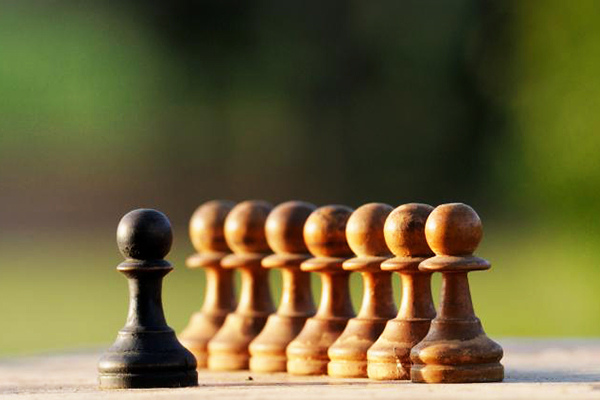Prejudice in the time of coronavirus

A high-pressure situation generally brings out the best and worst in people. The COVID-19 pandemic is no different. It has underlined various prejudices, ignorance and visceral divisiveness amongst people around the world. While more than a million people around the world cutting across race, religion, gender, and other superficial differences have been affected by COVID-19, people have still found ways to target specific communities to blame for the pandemic.
Perhaps the most famous and public expression of prejudice was US President Donald J Trump referring to COVID-19 as ‘Chinese Virus’. This was echoed by several right-wing leaders and media-persons with such political leanings. In practice, this led to a racial backlash against persons of Chinese origin who were blamed for the pandemic.
India too has been susceptible to this trend. There are numerous cases of racial prejudice faced by Ladakhis and persons from the Northeast India, in the Indian plains. Perhaps the most common expression of this prejudice and ignorance is when people from Ladakh and India’s Northeast are being taunted with racial slurs. There were several cases of Ladakhi students being asked to vacate their rented spaces. There are numerous cases where this ignorance has taken a more unpleasant expression. There are cases of people hurling abuses, spitting and threatening physical violence against people from Ladakh, the Northeast or others with similar racial and ethnic features.
In addition, in India the Muslim community has also faced the brunt of prejudice and discrimination with many blaming members of the community for spreading the virus in the country. The COVID-19 pandemic has taken on a communal hue in India after news of the Tablighi Jamaat convention in New Delhi became public. In the midst of a generally professional approach to a pandemic, there were some disturbing news reports of some doctors refusing to treat Muslim patients because of their religion. Islamophobic memes started to appear on social media and hash-tags such as #CoronaJihad and #TablighiVirus were trending on social media.
Former Chief Minister of the erstwhile Jammu and Kashmir state, Omar Abdullah condemned the communalisation of the pandemic through a tweet on 31 March where he wrote, “Now the #TablighiJamat will become a convenient excuse for some to vilify Muslims everywhere as if we created & spread #COVID around the world.”
Many of these prejudices have been evident in Ladakh. In early March as the first cases of COVID-19 were reported in Ladakh, it emerged that the patients had returned from a pilgrimage in Iran. While there was no overt expression of discrimination, many people privately expressed their prejudices with regard to the Muslim community for bringing COVID-19 to Ladakh. People, including highly educated individuals and religious leaders, would freely cite un-verified claims circulating on social media and television to justify their prejudices.
Furthermore, migrant labourers in Ladakh were at the receiving end of prejudices as fear of COVID-19 peaked in Ladakh. Many Ladakhis were being thrown out of their rented spaces by landlords who feared contracting COVID-19 from them. Each year hundreds and thousands of migrant labourers from different parts of India and Nepal arrive in Ladakh by March; and have played a pivotal role in building Ladakh. However, this year, many of them were forced to leave their rented spaces in Leh, Changthang, Nubra, Sham and Lalok. Furthermore, landlords in two neighbourhoods of Leh asked even their Ladakhi tenants to leave and return to their villages.Such actions left many migrant labourers and Ladakhi tenants in a lurch. The district administration tried to counter these actions by warning landlords of legal action, while also providing ration and financial support to some migrants to return home. The UT Ladakh administration has also put social media group administrators on notice for the content being shared and discussed on their groups.
It is unfortunate that Ladakhis, people from the Northeast and Muslim communities have had to bear the brunt of people’s prejudice and ignorance. However, it is equally unfortunate that many people in Ladakh too acted on their prejudice, ignorance and fear to target vulnerable groups of people, especially migrant labourers and people from rural Ladakh. At a time when containing the virus should be our collective priority and when unity is a necessity, people around the world have submitted to their deeply held prejudices and fears. In contrast, coronavirus does not differentiate on the basis of race, class, caste, religion, gender, or for that matter age. We will hopefully develop a vaccine for COVID-19 and other such viruses. But how will we find a cure for the prejudices, ignorance and deep-seated hatred we seem to be nurturing within ourselves?
By Tashi Lundup and Sunetro Ghosal
Tashi Lundup and Sunetro Ghosal are part of the editorial team at Stawa.
